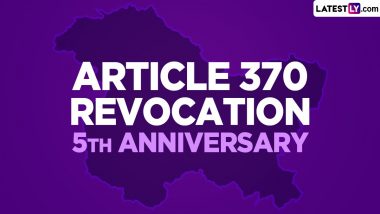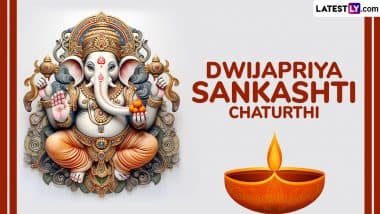Mumbai, August 5: The Narendra Modi government scrapped Article 370, which provided temporary special status to the state of Jammu and Kashmir on August 5, 2019. This decision meant that Jammu and Kashmir would no longer have a separate constitution and that all Indian laws would apply to the region. Along with scrapping Article 370, the government also bifurcated the state into two Union Territories - Jammu and Kashmir division and Ladakh division. This year, August 5 marks the fifth anniversary of India revoking Article 370.
The President of India issued an order under the power of Article 370, overriding the prevailing 1954 Presidential Order and nullifying all the provisions of autonomy granted to the state. Later, the Home Minister introduced a Reorganisation Bill in the Indian Parliament, seeking to divide the state into two union territories to be governed by a lieutenant governor and a unicameral legislature.
The resolution seeking the revocation of the special status under Article 370 and the bill for the state's reorganisation was debated and passed by the Rajya Sabha on August 5, 2019. On August 6, the Lok Sabha debated and passed the reorganisation bill along with the resolution recommending the revocation. The move was met with various reactions from people of the country. Supporters argued it would lead to better integration of Jammu and Kashmir with the rest of India and boost economic development, while critics expressed concerns.
Article 370 of the Constitution of India was a 'temporary provision' inserted on October 17, 1949, which gave special powers to the state of Jammu and Kashmir, lawfully authorising it to have its own constitution. Accordingly, the provisions of only Article 1 and Article 370 of the Indian Constitution applied to the state.
(The above story first appeared on LatestLY on Aug 05, 2024 02:25 PM IST. For more news and updates on politics, world, sports, entertainment and lifestyle, log on to our website latestly.com).













 Quickly
Quickly





















